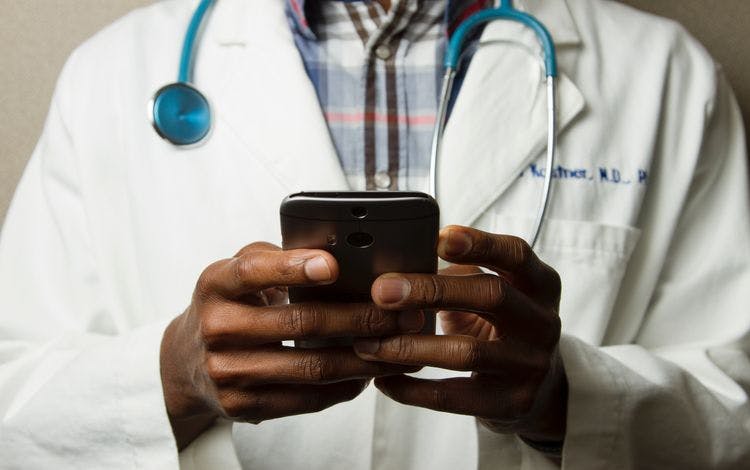What is the coronavirus? How do I prepare my small medical practice for the coronavirus? How do I prevent coronavirus from spreading? How do I instill trust in my employees that we have strategized to take on the coronavirus? How do I prepare my employees to handle the coronavirus at my small medical practice?
Everywhere you look, you see the term coronavirus. On December 31, 2019, the first case of the novel coronavirus (2019-nCoV/) was reported in Wuhan, China. On January 30, 2020, the World Health Organization (WHO/) declared a global health emergency, and a day later, the United States filed a national health emergency to instill preventative measures for flights going in and out of China and surrounding regions.
What is the Coronavirus (2019-nCoV/)?
According to the WHO, the novel coronavirus (2019-nCoV/) is a new strain of coronaviruses (CoV/) that has not been previously identified in humans. CoV is a large family of viruses that cause illness ranging from the common cold to more severe diseases such as Severe Acute Respiratory Syndrome (SARS-CoV/) and Middle East Respiratory Syndrome (MERS-CoV/). All forms of CoV are transmitted from animal to human but is then passed along from human to human.
Common signs of 2019-nCoV infection include respiratory symptoms, fever, cough, runny nose, sore throat, fever, breathing difficulties, and shortness of breath. In severe cases, pneumonia, severe acute respiratory syndrome, kidney failure, and death are common.
Currently, there are no specific medicines recommended for 2019-nCoV. No antibiotics work against the virus, only on bacterial infections. Since 2019-nCoV is a virus, not an infection, an antibiotic would not be used for treatment or prevention. Additionally, there are no vaccines for 2019-nCoV, but all options are being researched in a lab as we speak.
Stocking Up Your Medical Practice
Even though there are no specific medications that can be used to treat and prevent 2019-nCoV, you can stock up on certain items to prepare for potential patients.
1. Make sure you have an area that can be an "isolation area". This is in the case where a patient comes in with 2019-nCoV and needs to be watched and isolated for some time. You may want to consider preparing this room to be a bit comfier since they will most likely require observation for an extended period if a local hospital cannot make the transfer.
Note: If you have a negative pressure airborne infection isolation room - amazing! But if you don't, that's okay - consider contacting all local hospitals to see how they are preparing for 2019-nCoV and if they have isolation rooms and transportation available.
2. Buy extra face masks, gloves, and disposable isolation gowns for your protection.
3. Stock up on all hygiene products (soaps, sanitizers, solutions, etc./).
4. Make sure you have enough specimen testing kits. The CDC provides you with extensive information on which types to order, as well as any information you may need about preparing for the coronavirus.
Preparing Your Employees
To prepare your employees for 2019-nCoV, it is important for them to know prevention and isolation care, as well as putting together a plan of attack if 2019-nCoV comes knocking on your small medical practice's door.
Preventing The Spread of 2019-nCoV
The Center of Disease Control and Prevention (CDC/) says the following ways are the best way to prevent 2019-nCoV:
- Washing your hands regularly
- Try not to touch your face
- Covering your mouth and nose when coughing and sneezing
- Avoid eating any spoiled animal products and thoroughly cooking meat and eggs
- Avoid close contact with anyone showing symptoms of respiratory illness (coughing, sneezing, etc./)
- Practice general hygiene measures when visiting animal product markets
The CDC also states that if you have a respiratory issue, in addition to the above bullets:
- Stay at home except in a medical emergency.
- Separate yourself from others in your home
- Call ahead before visiting your doctor
- Wear a facemask
- Monitor your symptoms
- Do not smoke
Employee Education
You may consider providing a refresher course for all healthcare personnel on how to obtain a specimen for testing, the specifics of patient placement, and reporting new cases of illness. Consider also reviewing appropriate PPE usage, triage procedures, patient placement, reporting 2019-nCoV cases (and to whom/), sick leave policies, unprotected exposure protocol, etc.
The most important thing each employee needs to know is that when they come to work every day, they feel safe. By preparing them, as well as your small medical practice as a whole, you are taking a level of stress off of a scary, and potentially deadly situation. 2019-nCoV is no joke - in China, there have been 43,101 cases of 2019-nCoV with 1,018 deaths and only 4,043 recoveries (according to WorldoMeters.info as of 02/10/2020/). One thing to note is that children have been less affected by 2019-nCoV - the median age range of patients is 49 to 56 years old, so you'd be more likely to treat a person in the middle of their life than one at the beginning. Still, 2019-nCoV has killed more people than SARS (SARS-nCoV/) back in 2003 that originated in Southern China.
Want to Look at Your Financing Options?
If you find yourself needing to find funding for your small medical practice, First Union Lending is here to help.
We have nine different business loan types to choose from. This means that we're uniquely qualified to help you find the perfect loan to open your small business.
Applying for a business loan doesn't affect your credit. Better yet, your business loan may be approved as soon as the same day.
To discuss our business loans with one of our lending experts, click here or call 863-825-5626. We'll talk about our various business loans and help you find the right one for your medical practice.
Get started with the process now by learning more about our business loan types.
